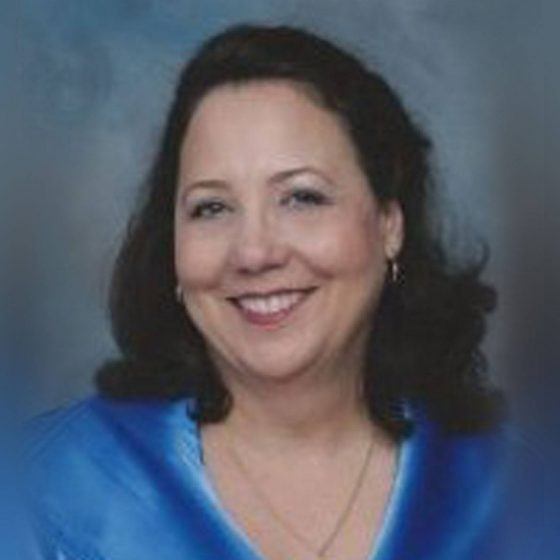Sales Goals, Specialists Detailed May Be Eyed for Off-Label Promotion
Pharmaceutical Corporate Compliance Report
Jan. 20, 2004
If government enforcement officials are looking for evidence that off-label activities involved management, rather than being the actions of a rogue sales employee, they may look to see if the company sent sales representatives to specialists who normally treat patients only for unapproved indications of the drug involved, according to a healthcare compliance expert.Other activities that might suggest to enforcement officials that the off-label promotion was part of an organized effort include sales targets that are inconsistent with the size of the market for approved uses, financial arrangements with physicians that are tied to off-label uses and tracking off-label prescriptions after related consulting activities or medical education events, Stephen Immelt, a healthcare lawyer in the Baltimore offices of Hogan & Hartson, said during a Jan. 15 FDAnews audioconference.
The government is also likely to be suspicious if a company is promoting a use for which it has already unsuccessfully sought FDA marketing approval or if it appears to be part of an effort to fend off competition from generics, Immelt added.
FDA actions against off-label marketing generally are limited to warning letters issued to companies over unapproved claims in packaging or advertising. But given the potential for treble judgments to be assessed, an adverse judgment under the False Claims Act can have “potentially ruinous financial consequences,” said Ted Acosta, a senior manager at Ernst & Young in New York and a former senior counsel at the HHS Office of Inspector General. Even without a court ruling, settlements with the Justice Department in false claims cases can be quite large, he pointed out.
“I’m sure the plaintiffs’ bar is looking actively for off-label cases,” Immelt said. In addition, Justice Department lawyers involved in healthcare fraud cases for the U.S. Attorney’s Offices in Boston and Philadelphia have publicly expressed interest in the issue, he noted (PCCR, Sept. 30, 2003, Page 1).
Much of this growing attention can be attributed to the pending whistle-blower case regarding alleged efforts by Parke-Davis (now part of Pfizer) to promote Neurontin (gabapentin) for pain treatment, although it is only approved for treating epilepsy.
A district court judge last summer rejected Pfizer’s request to dismiss the case, accepting the whistle-blower’s contention that drug companies may be liable under the False Claims Act for truthful off-label promotion of drug uses not covered by Medicaid (PCCR, Sept. 2, 2003, Page 1). Still unresolved in the case, Immelt noted, are the following issues:
- Whether states may provide Medicaid coverage for off-label indications not listed in recognized compendia;
- Whether Parke-Davis’ conduct, which allegedly included the use of continuing medical education and kickbacks to induce doctors to prescribe Neurontin for pain, was a substantial factor in causing the off-label prescribing; and
- How damages, if applicable, should be calculated.
Although the area of false claims enforcement involving off-label promotion is still very new, it appears unlikely that Justice will prosecute off-label activities that the FDA treats as permissible, such as responding to unsolicited requests for information from healthcare practitioners. “I think if people are keeping themselves within the FDA’s guidance, I don’t think it would be attractive to the government” to prosecute, Immelt said.
In discussing off-label uses and educational and promotional activities with government investigators and prosecutors, drugmakers should make sure that enforcement officials are aware of the medical benefits of off-label usage, Immelt said, pointing out that state-of-the-art oncology treatments often depend on off-label use. There are also free-speech guarantees that apply to much commercial speech, an area that has not been fully litigated with regard to FDA marketing restrictions.
Compliance officers and others charged with protecting drugmakers from enforcement risk should “dig beneath the surface of medical education and consulting activities” to look for off-label promotional efforts that could attract unwanted government scrutiny, recognizing that sales and marketing activities “can transform perceptions about clinical issues,” Immelt said.
Off-Label Promotion Can Boost Qui Tam Risk
Drugmakers promoting off-label uses of their products may inadvertently help whistle-blowers with their cases and attract closer scrutiny from government investigators, according to an expert in healthcare litigation.
Whistle-blower cases against pharma companies in the last couple of years have chiefly involved pricing issues and allegations of kickbacks. “But it is nice [from the whistle-blower’s point of view] if the drug or drugs at issue are being marketed for unlabeled uses and we can establish that those uses are of questionable efficacy,” attorney Kenneth Nolan told PCCR in an interview.
Nolan, whose Fort Lauderdale, Fla.-based law firm has recovered about $70 million for the federal treasury in qui tam cases, said he didn’t want to comment specifically on the whistle-blower case against Pfizer currently before the U.S. District Court in Boston, which involves allegations of off-label marketing (PCCR, Dec. 9, 2003, Page 8).
However, he said he did not agree “with the notion that just because a pharmaceutical company is marketing off-label that it is a false claim. I also will add that I think that the policy of allowing physicians to prescribe off-label, whether or not there is oversight by the FDA, is very sound.” But he suggested that future lawsuits could allege liability under the False Claims Act based on off-label indications that are not supported by a major pharmaceutical compendium, as cited in the Medicaid drug rebate statute.
Nolan predicted that going forward, whistle-blowers are likely to be filing different kinds of cases because the pharma industry has done away with old practices cited in litigation over the past few years. However, he noted that there are likely many cases still under seal or undisclosed investigations stemming from illegal practices in the 1990s, especially in the areas of kickbacks and pricing.
Newer litigation is likely to involve honorarium payments, continuing medical education, free samples of injectables and clinical trials, he predicted.
Copyright © 2004 by Washington Business Information, Inc.
All rights reserved. Do not duplicate or redistribute in any form.
Kathleen Hawkins
- Dignity Health
- $37 million
Kathleen Hawkins, RN MSN, had been employed by Defendant, Catholic Healthcare West (CHW) for approximately 6 years when she decided she had had enough of trying to change the hospital system from within.
CHW, a California not-for-profit corporation that operated hospitals in California, Arizona, and Nevada, was at the time the eighth largest hospital system in the nation and the largest not-for-profit hospital provider in California.
CLICK FOR MORE
Joe Strom
- Johnson & Johnson
- $184 Million
Joe Strom contacted us in 2005. We were very grateful that he did. We immediately formed an all-star legal team and a process to stop a very harmful pharmaceutical marketing strategy. It was this process we set into motion that ultimately returned hundreds of millions of dollars to the U.S. Treasury, and a portion of that, very well-deserved, into Joe’s bank account.
Joe told us a very troubling story about the off-label promotion of a pharmaceutical drug for patients who already suffered from chronic heart failure.
CLICK FOR MORE
Bruce A. Moilan Sr.
- $27 Million
Bruce Moilan was a seasoned hospital systems expert by the time he contacted our Firm. At the time he decided to file his qui tam lawsuit, he was employed by South Texas Health System as a System Director for Materials Management. In this position, he oversaw $24 million in annual purchases of supplies and equipment and helped determine budget, reduction and cost analysis throughout the contract bidding and negotiations process. His job was to insure proper implementation for purchasing, receiving and management of inventory, for McAllen Hospitals, L.P.
CLICK FOR MORE


